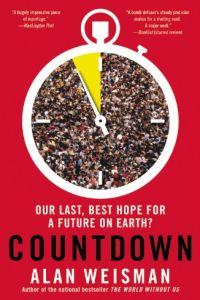Join getAbstract to access the summary!

Join getAbstract to access the summary!
Alan Weisman
Countdown
Our Last, Best Hope for a Future on Earth?
Back Bay Books, 2013
What's inside?
Humanity’s prospects are bleak, unless society finds a proper balance between Earth and its people.
Recommendation
Journalist Alan Weisman issues a storm warning against the dangers of overpopulation and environmental destruction. His narrative, based on astounding reporting, circles through nearly every corner of the planet. He explores the ways people are coping with life that is becoming increasingly less sustainable. Humanity now lives in an era when the art of survival means mastering the compulsion to consume. “Less is more” has never been so true. Moreover, technology is not the solution, and the belief that growth can cure bad financial habits is wrong. While “demography isn’t destiny,” Weisman urges individuals and governments to act more aggressively to find a proper balance between the environment and humankind. getAbstract recommends his deeply informed argument – based on fostering a more refined sense of what it means to be human – to policy makers, legislators, activists and citizens seeking a clear presentation of arguments against consumption and population growth.
Summary
About the Author
Prize-winning journalist Alan Weisman also wrote the New York Times bestseller The World Without Us. He teaches at the University of Arizona.

















Comment on this summary